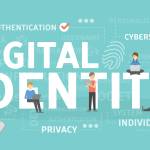Global
Governments around the world are realising the benefits and the importance of digital identity, according to data and analytics company GlobalData.
GlobalData’s latest report, ’Digital Identity’, reveals that the theme had previously been slow to take off, hampered by countries driving in different gears.
“Digital identity’s time is now,” said David Bicknell, Principal Analyst, Thematic Intelligence team at GlobalData. “There are many possible use cases, from financial services to tracking and managing identities in the metaverse. Covid-19 has been an important driver. It took a global pandemic for governments to recognise that vaccination certificates on smartphones enabling foreign travel was the killer app that digital identity could deliver, and people could use, even if they might not recognize it as digital identity.”
However, the US lags behind, hampered by a patchwork of state initiatives but no federal conformity on digital identity, noted GlobalData.
Denmark
The Danish government has signed a new contract with IT services firm DXC Technology to further develop digital ID services in the country. The company reportedly has worked with the government for five decades.
Under the 6-8-year agreement, DXC will develop and manage the country’s civil registration system, including the creation of digital apps and automation processes. It was awarded as a European Union public tender, but details of the contract were not released by DXC.
The registration system enables 40,000 citizens to make digital transactions. It is part of the Danish government’s Ministry of the Interior and Housing and assigns citizens a unique identification number with which to access several public services.
The system, which holds legal, criminal, tax and health records, links multiple other government identity registrations. DXC says the government shares the information with more than 2,000 banks, insurers and other private organizations to provide access to other services.
DXC says that under the contract, its datacentre will manage end-to-end service delivery and ensure centralised digital ID records are correctly collected and securely stored.
Brazil
More than half of the Brazilian population are now storing and using a digital version of their voter ID card (54 percent) or driving licence (51 percent) on their smartphone, while just over four in ten have a digital vaccination card (43 percent) and one in four have uploaded the recently launched digital Carta de Identidade Nacional national ID card (25 percent), according to a survey.
The survey also shows that 46 percent of respondents have used biometric fingerprint recognition to access digital services from their smartphone and 43 percent have used their face compared with 5 percent for iris and four percent for voice recognition, with the use of facial recognition showing the greatest increase, up from 29 percent last year.
Survey participants identified fingerprint recognition as the easiest and most comfortable digital service authentication method on their smartphone (37 percent), followed by facial recognition (21 percent) and passwords (20 percent), with 29 percent also identifying fingerprint recognition as the most secure followed by facial recognition (23 percent) and iris recognition (15 percent).
Europe
The European Council (EC) has reached agreement on a revised proposal for the legislative framework for the EU’s European Digital Identity Wallet, which will enable EU citizens to store digital identity credentials including their national ID, driving licence and bank account details on their smartphone.
The EC now has a “negotiating mandate” to take the proposal to the European Parliament for the next stage of the legislative process.
Overall, the proposed new framework will “ensure universal access for people and businesses to secure and trustworthy electronic identification and authentication by means of a personal digital wallet”, by requiring member states to “issue a digital wallet under a notified eID scheme, built on common technical standards, following compulsory certification.”
It will also create “a legal framework for the exchange of identification attributes and information linked to identity”, provide for “user control and data protection and the targeted sharing of identity data limited to the needs of the specific service requested”, and recommends “the development of a Union toolbox defining the technical specifications of the wallet”.
Norway
The Secure Identity Alliance (SIA) and the Norwegian University of Science and Technology (NTNU) have partnered to conduct a survey on the implementation of Privacy by Design principles within National Digital Identity Systems (NDIS).
The survey’s main objective is to examine practitioners’ “knowledge of,” “attitudes towards,” and “practices for” when integrating privacy by design principles into the development of digital identity systems,” according to a press release shared with Biometric Update.
The research is to gather responses from government agencies that manage or issue digital credentials or suppliers of ID system components and infrastructures.
Global
Seventy percent of companies surveyed pay for management tools they were not using when asked, according to a survey by One Identity into how well companies in multiple countries were using ID and access management software. The resulting report describes firms hobbled by “misguided enterprise investment in fragmented identity tools.”
The way tools are being used has rendered some companies “insufficient” in their efforts to protect identity data, it noted.
All the companies surveyed said they have deployed more than one ID management tool. Forty-one percent of companies are using 25 or more disparate tools.
Moreover, 70 percent of responding companies said they are paying tools that they are “not actively using.” At the same time, 90 percent of respondents reported suffering a digital ID attack in the previous 12 months.
If you liked this content…
Bahamas
Bahamas-based digital ID firm Bluestone Labs has entered a six-year contract with the country’s Unified Public Transportation Co. (UPTC) to implement a new payment system utilising digital ID for public transportation, as per Biometric Update.
The system will work with the nation’s central bank digital currency (CBDC) and biometric payments support.
It will debut on the island of New Providence and is expected to be installed on 220 buses running 40 routes and transporting 60,000 to 90,000 passengers per day.
The UPTC jitney pass will be available to travellers via a new transit feature within Bluestone’s mobile app, available on both Android and iOS devices.
According to a UPTC statement, the app will allow advanced routing for bus trips, real-time notifications for parents monitoring children’s journeys and emergency-reporting capabilities.
United States
Major corporations in the United States are encouraging state governments to enact six policies considered by industry insiders vital to establishing a national secure digital ID regime.
The Better Identity Coalition comprises 27 companies, including AT&T, Equifax, Yubico and Mastercard – and elsewhere — Onfido and Idemia. The coalition is a project within the non-profit Center for Cybersecurity Policy & Law.
First, members of the coalition are encouraging states to make their motor vehicle licensing agencies the core of building and then maintaining systems that interoperate with other state agencies and governments beyond their own borders.
These agencies for the most part are already central to each states’ identification processes, moderating learning curves.
Vital records bureaus should be updated, according to coalition members, having them create attribute-validation services. Vital records include birth, marriage and death databases.
Third, state officials have to overcome fear, uncertainty and doubt of ID innovations that can get the most residents in digital ID programmes, like mobile driver’s licences. Policymakers should also make sure digital ID services meet industry and government standards.
Governmental leaders have to ensure that programmes created to support marginalized populations get the same attention as the driver’s license effort. Not only is it the right (and probably legal) thing to do, every step that gets a state closer to 100 percent participation with digital IDs is important.
They have to make strong authentication a guiding star for programs. Multi-factor authentication is keystone of any digital ID scheme.
And sixth, do no harm. It is as critical here to hold that motto as it is on a surgical room. Some mistakes and avoidable problems will have life-long impacts.
India
India’s National Health Authority has selected Life Clips’ subsidiary Belfrics to issue roughly one million Ayushman Bharat Health Account (ABHA) digital IDs by the end of June 2023 in the form of its Belshare wallet app. The Ayushman Bharat Mission is expected to be the world’s largest healthcare infrastructure.
The move will reportedly establish a solid and trusted digital identity that healthcare providers and payers across the country will accept.
Through the new blockchain technology, Belfrics intends to build a solution where health data is stored and interoperated seamlessly through user-consented architecture.
The Ayushman Bharat Digital Mission launched in Septebmer 2021 and soon proved controversial as the Aadhaar accounts of many were linked to it without their consent when they came forward for COVID-19 vaccinations. Within two months, 140 million were registered, 96 percent of whom had linked to their Aadhaar national biometric ID.
South Korea
South Korea-based digital transformation (DX) company and member of the Decentralized Identity (DID) Alliance Korea, LG CNS, an IT services subsidiary of LG, launched its DDIDID mobile ID service with blockchain technology.
The new digital ID aims to replace existing plastic ID cards, initially for employees, enabling them to pay for beverages at the company’s coffee shop and to enter the company’s cafeteria.
LG CNS’s digital ID reportedly relies on blockchain-based digital distributed identity verification (DID) technology to enable individual employees to decide what data to share via their mobile devices.
United States
Google is beta testing support for the ‘Digital Driver’s License’ in the Wallet app on Android phones.
According to Google’s updated support page, users running Android 8.0 (or later) who are in the Google Play Services beta program (specifically, version 48.22) are eligible. After enabling Bluetooth and Nearby Devices, and also making sure your phone has a scent lock, you should now see a new option for “ID Card (beta)” when adding a new card to the Google Wallet app.
The feature was announced during Google’s developer-oriented I/O keynote in May, where it showed a slide with Maryland as the first ID available for the upcoming feature.







